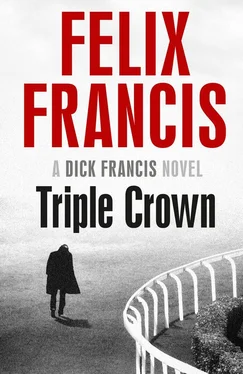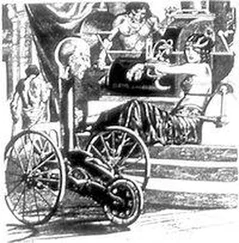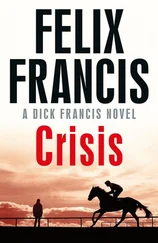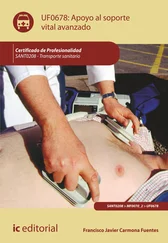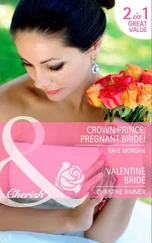I was due to leave National Airport somewhat later than Frank, at 3 p.m. local time, and I was packed, with my suitcase ready for collection on my way to Check-in.
National Airport, or Ronald Reagan Washington National Airport to give it its full title, was only a couple of miles from the FACSA offices and I was there in good time for my flight.
As I waited at the gate for boarding to commence, I discovered that I was not alone among strangers. Three of the FACSA special agents were there too.
‘Hi, Jeff,’ Bob Wade said, walking over to where I was waiting. ‘How did you get on this flight? I thought all seats were taken. Steffi is having to go through Chicago.’
Oops!
I thrust my boarding pass for seat 8C into my trouser pocket.
‘I’m a standby,’ I said. ‘I get on only if there’s a no-show.’
Bob seemed to accept my hastily made-up explanation.
He came and sat down next to me while the other two took the seats opposite.
‘You’ve met Cliff Connell and Larry Spiegal?’
‘Sure,’ I said, leaning forward and shaking their hands. ‘We met yesterday.’
‘What is it yer do?’ Larry asked in a deep Southern drawl.
‘Much the same as you,’ I said, ‘but in England.’
‘I went to England once,’ he said slowly. ‘With a friend when I was in college. Absolutely loved it. The best thing was y’all being able to drink booze at eighteen without a fake ID.’ He laughed. ‘I remember we made the most of that. Sadly, now, I reckon I can’t remember much else.’ He laughed again and Bob joined him, producing his rapid-fire guffaws.
The flight was called and Bob, Cliff and Larry went to board. I remained seated.
‘Good luck,’ Bob said. ‘See you in Louisville.’
I watched them go through the gate and down the jetway to the plane.
I waited until the very last minute to board and then made my way down to 8C only to find that I was seated right next to Cliff Connell.
‘Made it then?’ he said.
‘Yes,’ I replied sitting down. ‘Must be my lucky day. Where are Bob and Larry?’
‘Farther down the back.’
I strapped myself in and we taxied out to the runway for take-off.
The flight was scheduled to take two hours, not enough for a full meal service, but about half an hour in the flight attendant came through the cabin with a trolley offering drinks for purchase.
‘Fancy a beer?’ I said to Cliff.
‘I can’t,’ he said.
‘On duty?’
‘Armed,’ he said quietly in my ear while lightly touching his jacket beneath the left armpit.
‘Really? Don’t you get stopped at security?’
‘I have authorisation to carry a concealed weapon at all times. All federal special agents do.’
‘I thought guns and planes didn’t mix.’
‘I wouldn’t really want to use it while airborne,’ Cliff said with a smile. ‘But I always have it with me, just in case.’
The flight landed at Louisville on time at five o’clock and I was quite surprised to find that, in spite of being so far west, we were still on Eastern Time.
‘The time zone changes west of Louisville,’ Cliff informed me. ‘About half of Kentucky is on Eastern, the rest on Central.’
‘Doesn’t that make things rather complicated for the state government?’
‘Time zones are decisions for individual counties not states, although they have to be approved by the US Congress,’ he said. ‘But there are still a few crazy anomalies in some places — towns on Eastern Time that are farther west than neighbouring towns on Central.’
Tempus fugit , I thought, whatever the time zone.
Cliff and I joined up with Bob and Larry at baggage reclaim. Each of the agents had checked two large bags compared to my one, and theirs appeared to be much heavier than the fifty-pound airline allowance. But I suspected that they hadn’t had to pay any excess charges.
I hitched a lift in their pre-arranged transport from the civilian terminal round to the Kentucky Air National Guard facility.
Getting in was easy for the others but less so for me.
My new security pass, it seemed, was only valid for FACSA headquarters in Arlington. Fortunately I had three special agents with me to vouch for my integrity and soon all four of us were drawing up outside the dorm.
There was a list pinned to a noticeboard near the entrance showing names and the allocation of rooms. At least someone was expecting me, even if my name had been written in by hand on an otherwise typed sheet. I had been assigned Room 304 on the top floor, next door to Steffi Dean who was in 303.
Alongside the rooming list was another sheet of paper with NOTICE TO ALL FACSA SPECIAL AGENTS printed large and boldly across the top. Beneath, it stated that all agents must immediately read the briefing papers placed in their rooms.
I went up the concrete stairs to the third floor. The key was in the door.
I had imagined the dorm would be a large room with iron bedsteads arranged down each side, as in Tom Brown’s School Days , but that couldn’t have been further from the truth.
The dorm was, in fact, a block of twenty-four identical self-contained apartments, eight on each of the three floors. Each apartment consisted of a bedroom, an en-suite bathroom and a kitchen-cum-living room, that came fully equipped with furniture, large refrigerator and a microwave oven. There was even a wide-screen TV bolted to the wall with a bracket.
And these were enlisted men’s barracks, not those for officers.
I thought back to some of the accommodation I had been required to live in during my time in the British Army. I don’t think I’d ever had an en-suite bathroom, let alone a government-issue television.
I went back out into the corridor.
The key was also in the door of Room 303.
Steffi is having to go through Chicago.
That’s what Bob Wade had said to me at Washington National.
Surely she wouldn’t be here yet.
I looked up and down to check there was no one else in the corridor, then I opened the door to 303 and went in, removing the key while I did so.
There was a large white envelope on the bed with ‘Steffi Dean’ written on the front. The envelope was sealed shut.
Damn it.
I picked up the envelope and took it back to my own room. Then I searched the kitchen area and found what I was looking for in a cupboard — an electric kettle.
I hadn’t steamed open an envelope since I was thirteen, when I’d opened my school report before my father could see it. I had been particularly worried about what my history teacher had written concerning my poor behaviour in his class, and with good reason. I had removed the offending piece of paper before resealing the doctored report back into its envelope. My father had never known and I, of course, had never told him.
I did, however, discover one difficulty now that I hadn’t had the last time. Due to the development of more modern technology, this kettle kept switching itself off as soon as it started to boil, cutting off the flow of steam from the spout.
I solved the problem by tying a dishcloth around the kettle that held down the switch in the ‘on’ position and, before long, the white envelope was lying open on the worktop.
I scanned quickly through the briefing papers, ever conscious that Steffi could arrive at any time.
Much of the details I already knew from Tony’s earlier package. However, this time there was a detailed map of the barns at Churchill Downs with Hayden Ryder’s outlined in red, together with the raid timetable and a list of actions specific to Steffi Dean. I noted that she was to secure the northeastern corner of the barn on arrival.
The briefing papers also stated that the track opened for training at dawn, which was at 6.45, so the raid would take place at 6.30 a.m. on Saturday. They also gave details of the raid personnel and their specific roles, as well as the transport arrangements. All eight FACSA special agents would be involved together with Norman Gibson, the section chief, who was to be in overall control.
Читать дальше
